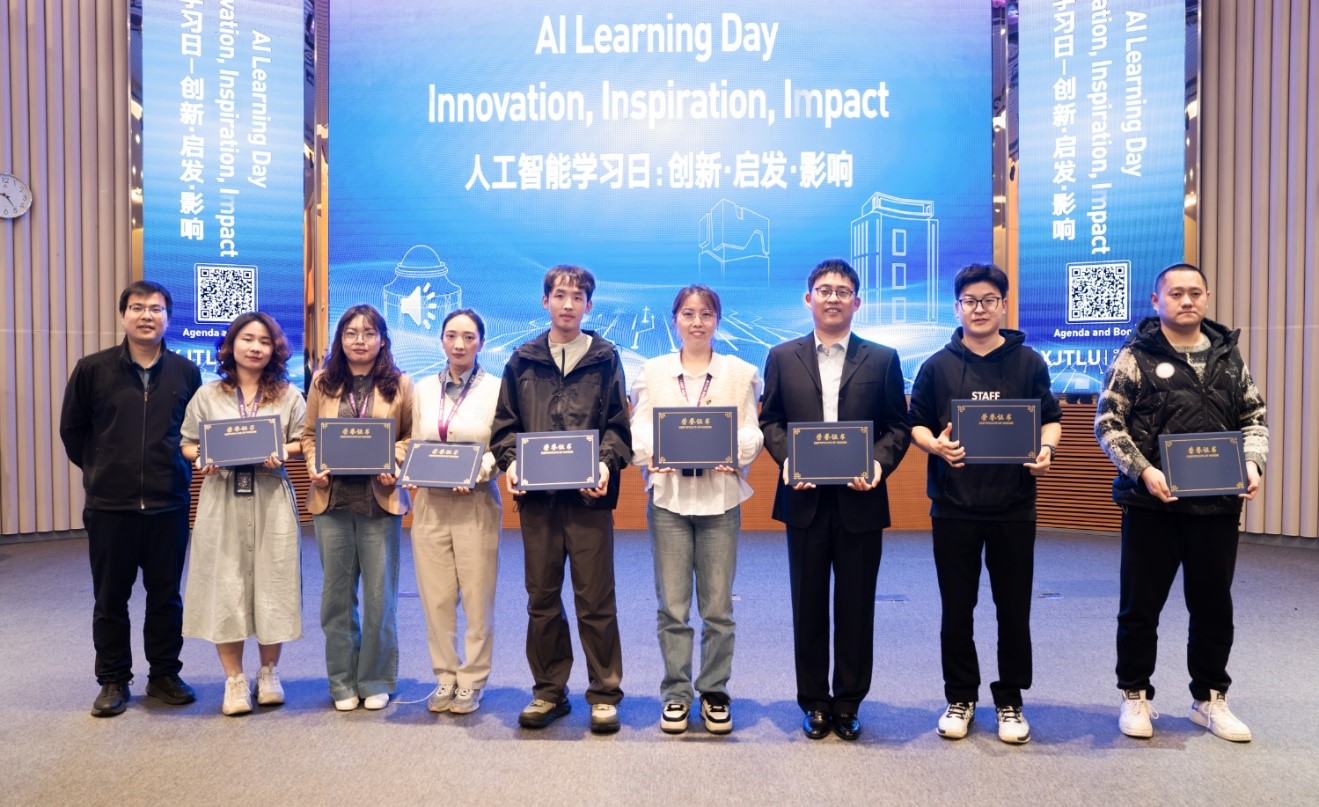On March 24th, 2025, the Centre for Knowledge and Information successfully hosted the “AI Learning Day: Innovation, Inspiration, Impact” at the G23W Central Building at SIP North Campus. The event had the honor of inviting Professor Youmin Xi, the executive president of XJTLU, to deliver an opening remark, sharing valuable perspectives on “Education +AI”. It also gathered award winners from the “XIPU AI in Education Innovation Competition 2024” and the “XJTLU Digital Platform Empowerment Competition 2024”. The presenters in theme talks and interactive booths shared cutting-edge insights and practical experiences, and offered valuable perspectives on how AI is reshaping education and how digital technologies are empowering management and operations.
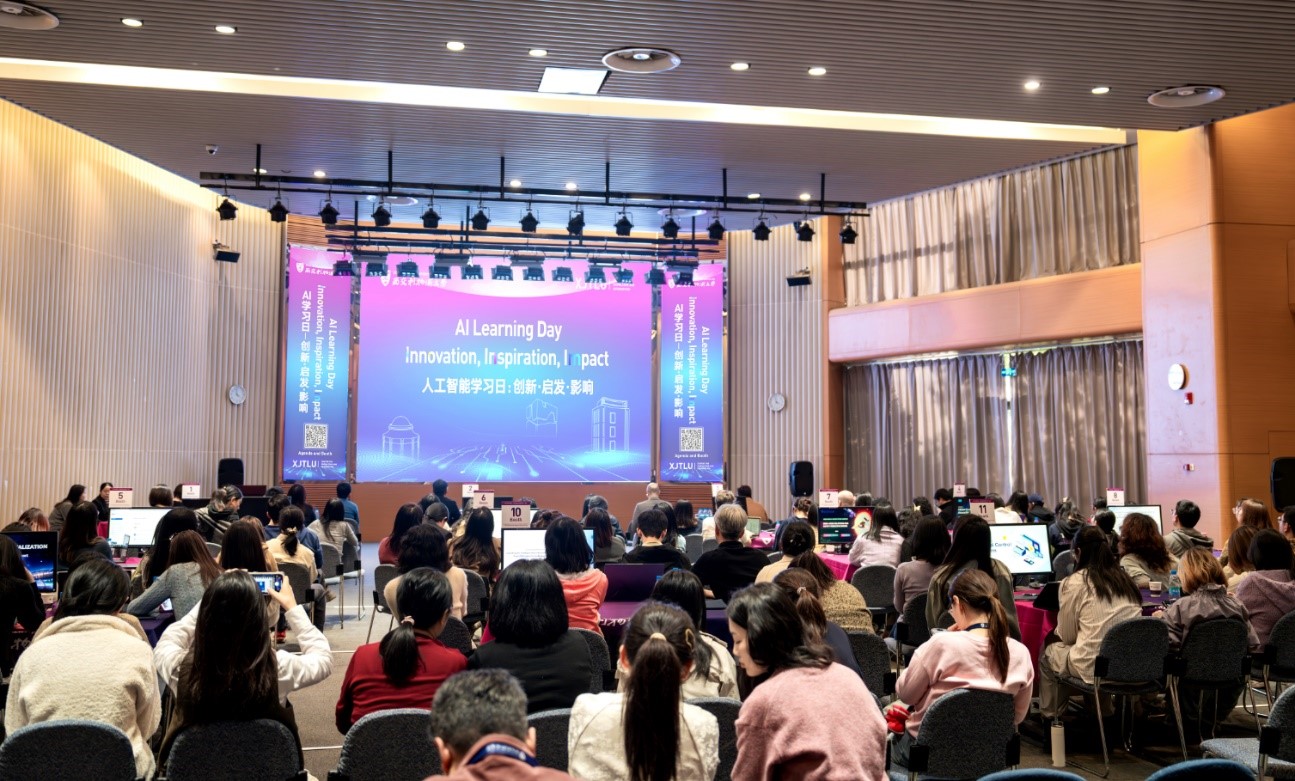
Professor Youmin Xi, the Executive President of XJTLU, in his opening remark shared how to apply the HeXie Management Theory to address the challenges of UACCS in digital and AI era, and he encouraged XJTLUers to embrace the future with HeXie Mindset and Syntegrative Wisdom. He also suggested leveraging artificial intelligence to enhance efficiency, and through human-AI collaboration to create a higher level of wisdom.
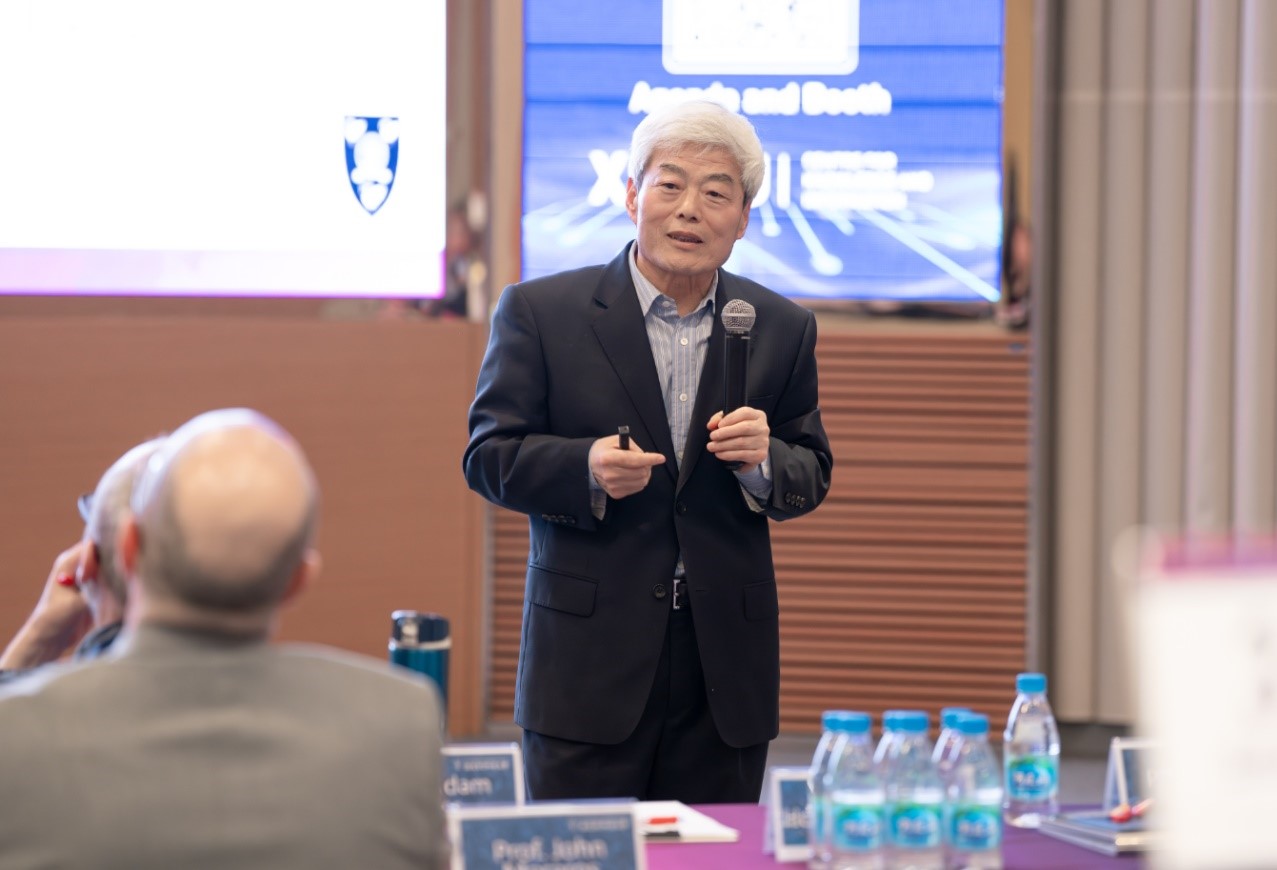
Dr. Xin Bi, Chief Officer of Data, Director of the Centre for Knowledge and Information, began his speech by focusing on the sixth pillar of the “Education + AI” strategy: “Infrastructure and Support.” He outlined the plan to enhance AI computing power, upgrade XIPU AI as the underpinning platform for AI use, and empower faculty and students with the knowledge and skills to effectively use AI. Meanwhile, Dr. Xin Bi further introduced the various practical functions encompassed by XIPU AI, particularly the use of knowledge bases and AI agents as personal assistants to enhance work efficiency and create greater value.
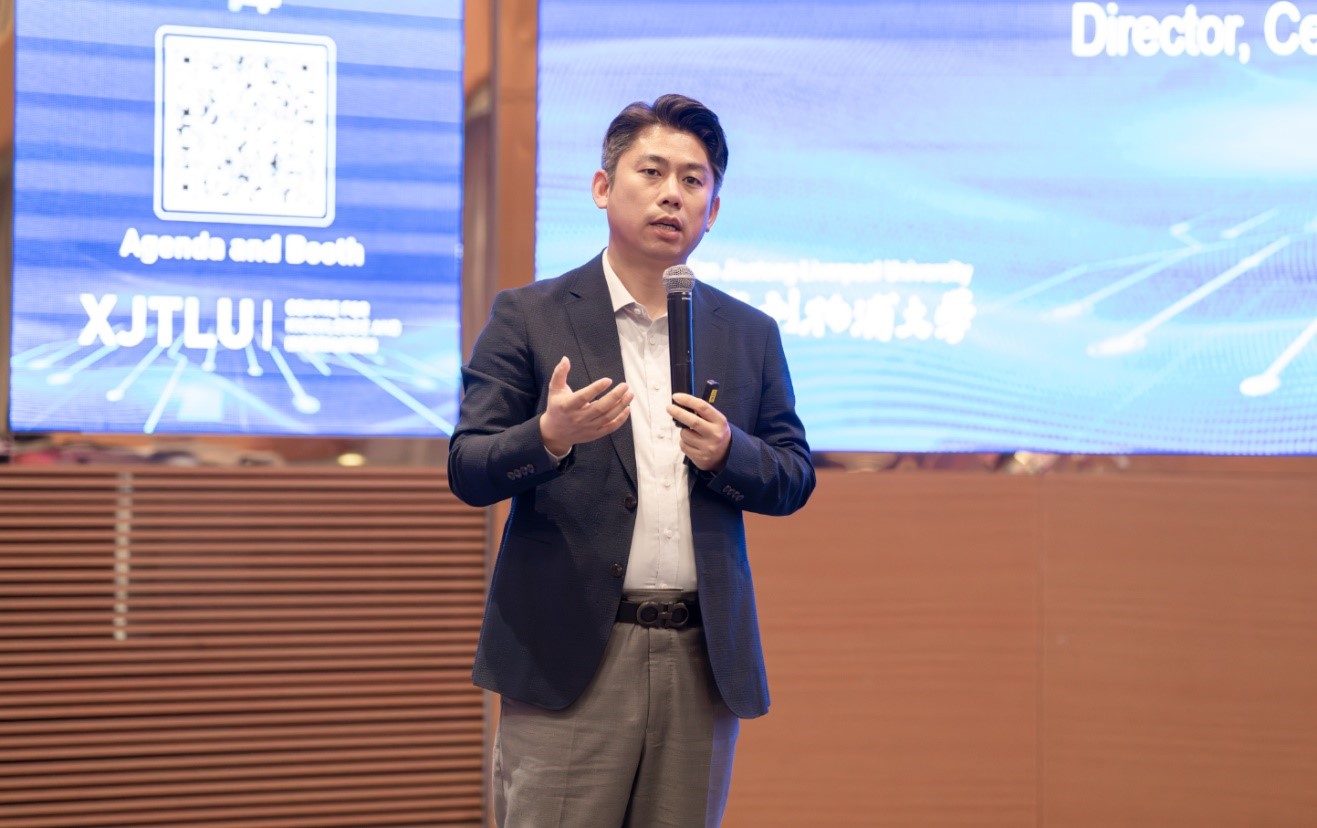
The award winners’ theme talks focused on two main topics: “XIPU AI in Education Innovation” and “Digital Platform Empowerment,” hosted by Jing Wang, Deputy Director of the Learning Mall, and Xudong Feng, Head of the Management Information Technology and Systems Office.
Dr. Erick Purwanto from the School of Advanced Technology demonstrated the immense potential of AI chatbots in empowering learning through examples of programming and language education. He pointed out that the personalized guidance and real-time feedback provided by AI chatbots are profoundly transforming traditional learning methods, bringing more possibilities to education. Venessa from the School of Humanities and Social Sciences focused on the application of artificial intelligence in daily life and education, exploring how to effectively utilize AI technology while emphasizing the importance of using new technologies responsibly.
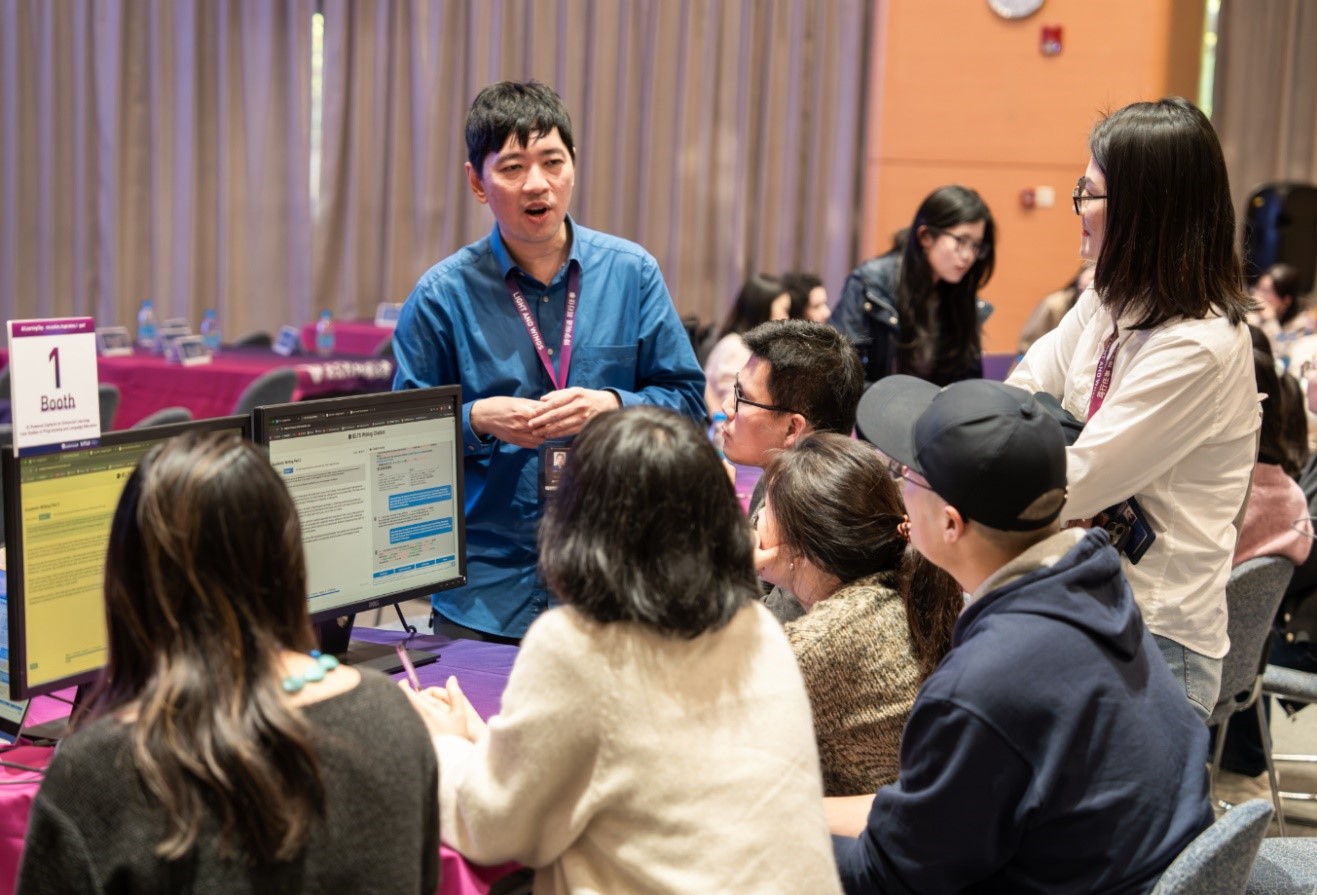
Michelle Ma from the Centre for Administrative Affairs presented the topic from a practical perspective. She offered an in-depth analysis of the Center's positioning, the challenges it faces, and its technological potential, while sharing practical experiences and future plans for value creation enabled by technology. Dr. Peng Zhao from the School of Science shared the college's innovative practices in scientific research data management. By introducing a no-code platform into the SCI Data Center, they fully leveraged the platform's advantages to streamline workflows, optimize data management, enhance automation, and promote collaboration, providing robust support for scientific research.
The event featured a total of 12 interactive booths, presented by innovative talents from different schools and departments. They showcased a diverse range of innovative AI and digital platform applications in both educational and day-to-day management and operation to the attendees. In the educational context, the content covered excellent cases of AI applications in financial data analysis, foreign language teaching, course design and assessment, as well as the AI mentor tool launched by LM. In the context of daily management and operations, the digital platform successfully empowered process optimization across multiple departments, being applied to campus safety early warning model, procurement system, data visualization, budget management, internal control platform and robotic process automation etc.
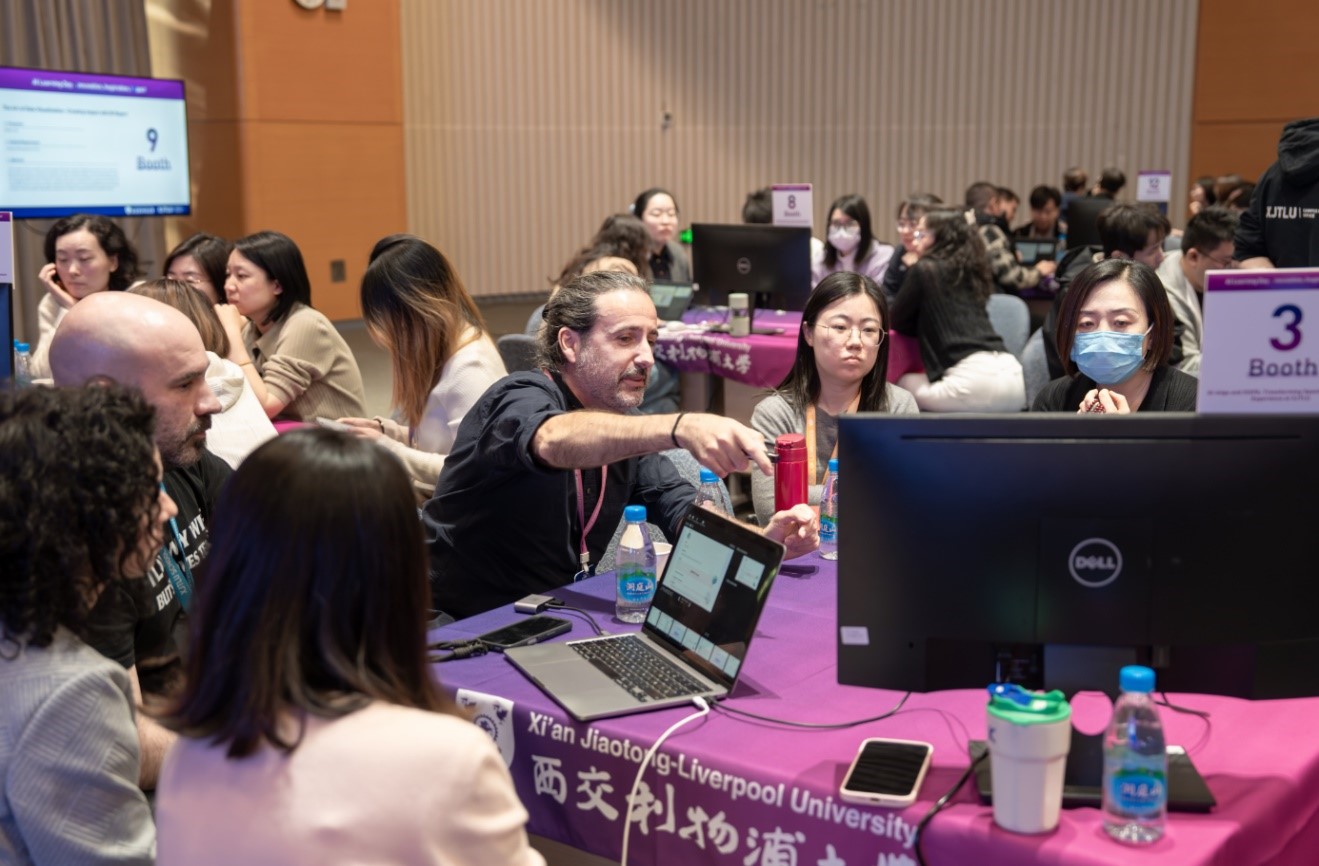
At the conclusion of the event, Jing WANG, Deputy Director of the Learning Mall, and Xiangang Hu from the Management Information Technology and Systems Office, presented awards to the interactive booth presenters. Chao Teng, Deputy University Librarian, summarized the event, expressing gratitude for the full collaboration between the Learning Mall and the MITS department, thanked the speakers and booth presenters for their wonderful presentations, and also expressed appreciation to the faculty and students for their active participation. She concluded, “The integration of AI in education is a continuous journey of exploration. Today’s event is not only a platform for exchanging innovative ideas but also a step toward shaping the future. Let this be our commitment to unlocking AI’s potential in teaching, management, and operations as we co-create a smarter, more Syntegrative XJTLU campus.”
